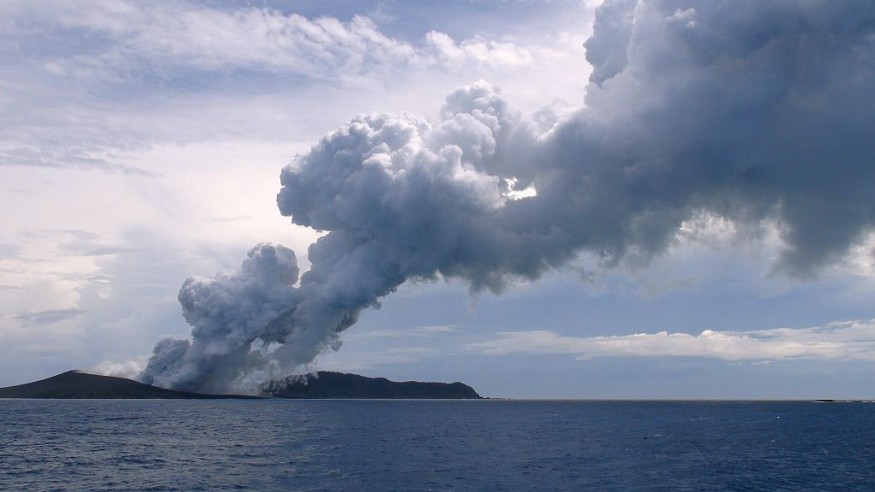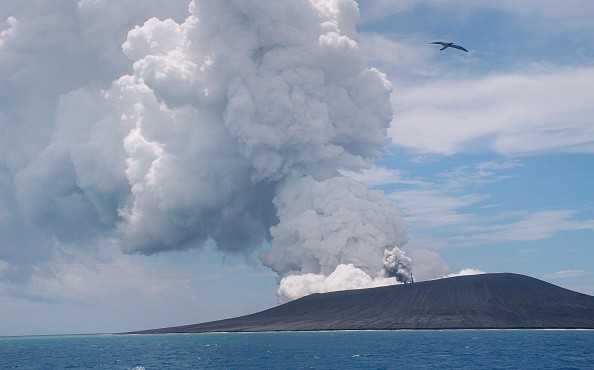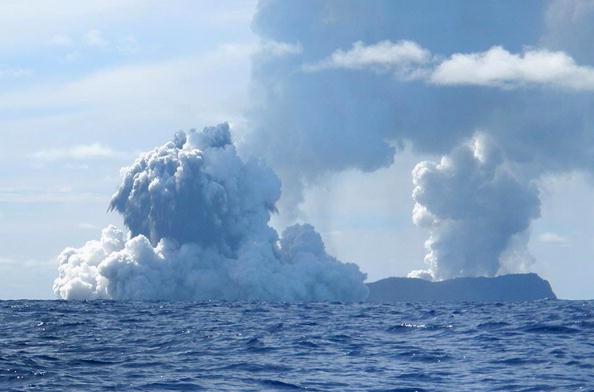Tsunami warnings were issued to communities around the West Coast on Saturday morning. Near the Kingdom of Tonga, an undersea volcano erupted, sending waves thousands of kilometers across the ocean.

By Saturday morning, waves of up to three feet had reached areas of Alaska. However, hours before those waves arrived, the blast's noises reached many Alaskans' homes, from Juneau to the Aleutians.
Waking Up to a Loud Noise

When Iris Caldentey awoke early Saturday morning in Palmer to loud, odd noises, she and her children were resting comfortably in their house.
"That's how I remember Pearl Harbor sounds - continual boom, boom, boom," she explained. "It was intense, I'll tell you."
What if it's avalanche prevention? The answer is yes. Perhaps the children are bouncing off the walls? Caldentey, like many others, had no idea what she was hearing.
It may be a burglar was trying to break into our automobiles, so I went outside to inspect the cars. They're also opening and closing the door. She described him as "not a very skilled burglar."
Laresa Syverson awoke in Unalaska to identical sounds and feelings.
"I assumed it was my cat-like; what's my cat up to? So he was accused of the most of it," she explained.
She first thought of her cat, then fireworks, and last, she assumed it was simply bass coming from someone's automobile.
Related Article : More Tsunami Threat? Second Massive Eruption Detected in Tonga Volcano
Tonga Eruption
The sounds were emanating from an undersea volcano erupting near Tonga, and neither Syverson nor Caldentey would have imagined that they were originating from it.
But that's precisely what it was: a tremendous explosion that shook the Pacific with sound waves and a tsunami.
The Aleutian Islands and the Alaska Peninsula were devastated by the greatest tsunami waves in Alaska. Waves in King Cove were a little over three feet high. When the waves reached Peru, the tsunami wrecked property in Hawaii and Japan, caused floods in California, and killed two individuals.
Powerful Boom
According to Syverson, people have written about hearing similar noises on social media, and a South Pacific eruption caused the booming sounds.
"To be honest, I didn't believe it until I saw satellite photographs of the actual eruptions after that. "Oh, sure, that's probably what we were hearing," I thought to myself.
Why did so many Alaskans detect a sound so far away, though? Simply put, this volcanic eruption was so powerful that it went hundreds of kilometers.
Ken Macpherson provides some fascinating insight for the lengthier answer. He works as a scientist at the University of Alaska Fairbanks' Wilson Alaska Technical Center. Listening stations and seismic monitoring are available at the center worldwide.
But most of the time, they're listening for something entirely different: secret nuclear tests throughout the world.
They'll pick up everything in the atmosphere, even nuclear weapons, but they'll also pick up any form of the atmospheric blast, with a volcano being an excellent example.
Monitoring the Situation
According to him, they pick up all types of earthquakes, landslides, and volcanic eruptions. He slept through it, but he claims Fairbanks' listening sensor heard up the boom. It's also fascinating since the sensors are designed to detect frequencies lower than human hearing.
Consider it a foghorn. They have a sound that is relatively low in frequency.
Because a lengthy period of low-frequency signal like that travels over a greater distance, " They attenuate at higher frequencies, "Macpherson explained. "They get filtered out by the medium they're going through," says the narrator.
To put it another way, a higher-pitched sound won't go as far.
It appears that the Tonga blast was so powerful that even a high-frequency signal audible to the human ear could reach about 6,000 kilometers and be heard extensively in Alaska, he added.
According to UAF experts, the sound wave from the blast travels at almost 700 mph.
"And so it took a long time to go to Alaska," Macpherson said, "since it's over 6,000 miles distant." "However, sound waves began to reach in Alaska roughly eight hours after the massive explosion in Tonga."
He claims he wouldn't believe it if he hadn't seen the statistics for himself.
'And, to be honest, when I first heard stories that this was being heard, I was doubtful of that,' Macpherson added. "However, it appears that it was feasible to hear it. And the timing appears to be ideal. As a result, it appears that it was widely heard throughout the state, which is incredible."
Scientifically Intriguing

It's scientifically intriguing, according to Macpherson, but it's necessary to consider the human cost of such an occurrence. What to Alaskans sounded like a colossal explosion might be catastrophic up close.
"And to be honest, when I initially heard accounts of this being heard, I was doubtful of that," Macpherson added. "However, it appears that you could hear it. And everything appears to be in place. This makes it appear as if it was widely heard across the state, which is incredible."
According to Macpherson, it's scientifically intriguing, but it's necessary to consider the human cost of such an occurrence. Alaskans may have heard a more powerful boom, but it may be fatal up close.
For similar news, don't forget to follow Nature World News!
© 2025 NatureWorldNews.com All rights reserved. Do not reproduce without permission.





